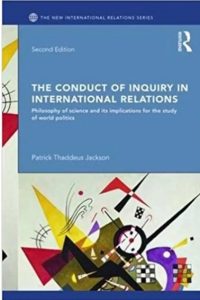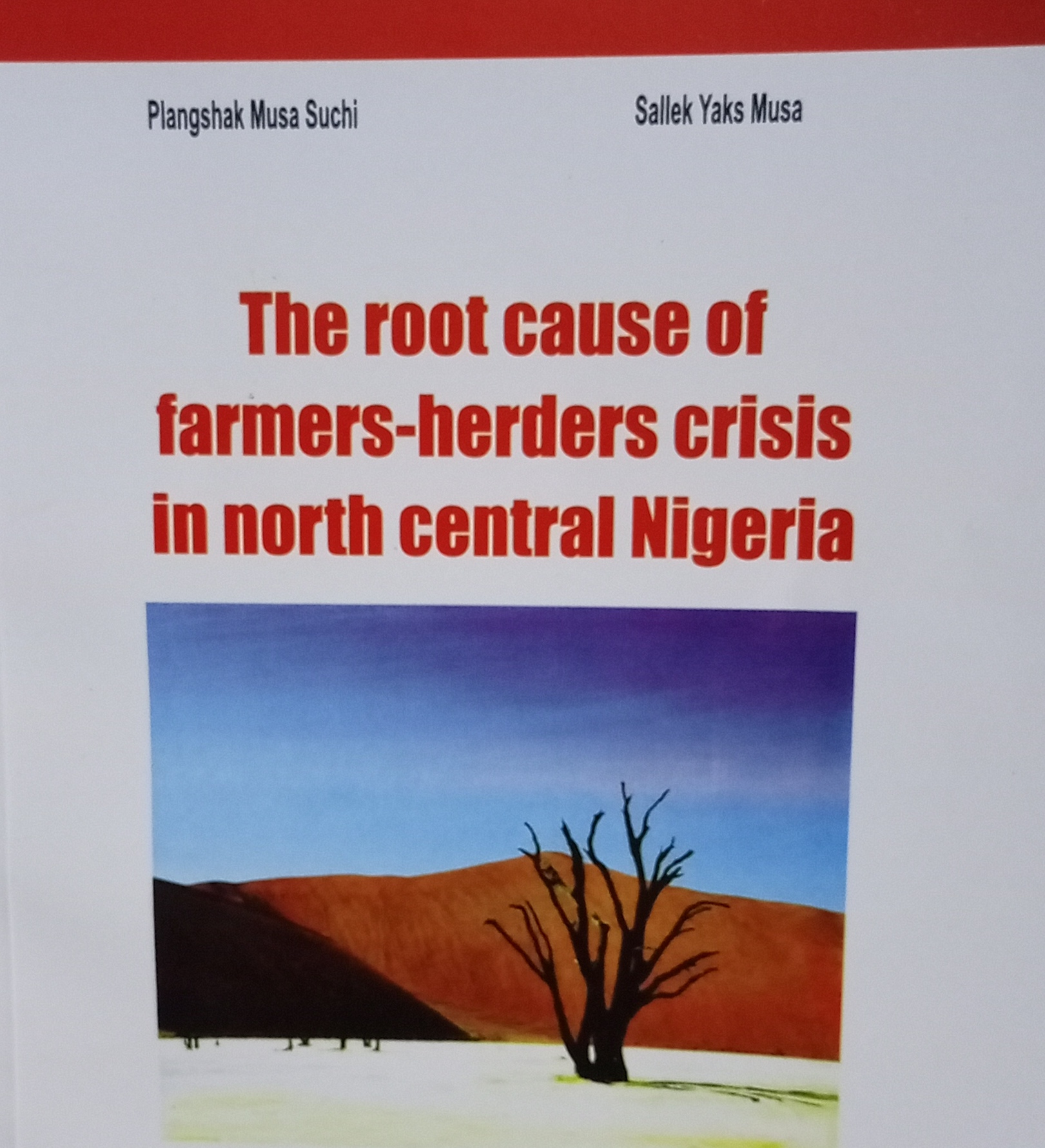The domain of methodology may look esoteric but it is what will be the defining feature of social life in the 21st century and thereafter. The question of who determines what is the truth and how cannot but be so. It is interesting that the debate on methodology since the end of the Cold War suggests that the future looks bleak for those at the receiving end of methodological wisdom. The domain has been such a battlespace since the highly regarded Robert Keohane tried to rule out those he called the reflectivists, (constructivist, poststructuralist, feminists, postcolonial, decolonial), in favor of those he called the rationalists, (liberals, realists, Marxists) in his 1988 presidential address to the International Studies Association. (I am not sure where critical theorists and critical realists belong in this classification).
Many would argue that the address eventually provoked the ‘Perestroika’ revolt in the US in 2000 which has since gone global. There has been a temporary ceasefire since Thaddeus Patrick Jackson published his The Conduct of Inquiry in International Relations in 2010 (2nd edition published in 2016) but methodology is still a battle space. While some of the established beneficiaries of the status quo are at war in defense of their privileges – huge Departmental budget, research grants by big players in world politics, control of journals and the influence that comes with statistically backed research reports- others resist the new arguments in ‘the Philosophy of Science’ and the corresponding research techniques either because they consider it tedious or are just simply ignorant of what has been happening there. So, the war rages over there and also here.

For now, the closest to a consensus across the board on methodology aside from Prof Claudia Aradau’s 2017 essay on methodology
It is not surprising that a reviewer of Jibo’s intellectual pedigree will bring to any book he is invited to review his awareness of the disputations and battlespace reflexes in methodology in the post Cold War. In reviewing the root causes of farmers-herders crisis in north central Nigeria, the two key points raised by Jibo is the adequacy of the research technique employed in relation to the title and how objective the selection of respondents was. But before we take Jibo, let’s understand what the authors did.
The authors made a fascinating move by boldly declaring their preference for interpretive ontology. It meant that their conception of how they could get the sort of information that could tell them the truth about the ‘root cause(s)’ is to let those who experienced it or who had privileged insertion into the flow of the conflict to provide answers based on their interpretation of the conflicts. That is, they were going beyond facts and figures or percentages that neopositivists or rationalists would have been bothering about in trying to establish the root causes. In selecting who speaks, they went for traditional rulers – District or community heads; LGA representatives; leaders of farmers association; of herders association; leaders of special interests in each community – youth, women and men leader; representative of the security community which is either police or civil defence; representative of community security platform – vigilante or whatever; representative of civil society organisation in each LGA chosen and religious leaders – Christian and Muslim. For the spread, they selected two LGAs in each of the three states to which the research was restricted. These were Benue, Nasarawa and Plateau states. The wealth of data were thematised and conclusions drawn from them. In a way, it was a fairly uncomplicated research.
Although, Jibo praised the authors for an honest attitude in conducting the research, Jibo also said the authors could only retain ‘root causes’ if they widened their sources of data beyond the key informant, (kii) technique they used to gather information. That is the authors could have also talked to development specialists, demographers and public policy experts. He added the point about how skewed the selection of respondents was against the herders. While it would be difficult to dismiss the first point, Jibo would hardly escape conviction and penalty in an Abuja fish joint for asserting the criticism of skewed selection of respondents. The authors didn’t have to bother about representativity anymore once they declared an interpretive ontology. This is because, in synthesising an interpretive research report, every position taken by any respondent, even if it is only one respondent who took such position, will count and stand on its own. It is not like quantitative research where the percentage of the population that subscribed to this or that position counts. On that score, it is either Prof Jibo was pandering to the slogans of ‘who speaks’ and ‘who is silenced’ in this kind of research or he was manifesting hangover of neopositivism. He couldn’t have been manifesting neopositivist hangover since, as one of the sets with the best grooming in Marxism in the hey days of ABU, Zaria, he even started deriding neopositivism many decades before the humiliation of neopositivism in the West in the post Cold War. So, why did Jibo make that claim?
Looking at the totality of the book, it would seem that the authors created what Jibo seized upon. Prof Jibo’s complaint about skewed selection would have been undermined if the authors had been faithful to the rules of inference in interpretive research. Since the data they had were not innocent, factual stuff but interpretive, they should have been treated as discourses which they were or are. What could have been drawn from them is the power relations they spoke to. Every sentence by any of their respondents spoke to a power relationship or the question of ordination and subordination in the dynamism of the conflict. It is their compilation of the ordination or subordination pattern as disclosed by the interviewees that should have led to any conclusion(s). And it should have been done in a manner that anyone reading the report could see the flow. Without that sort of approach, the research turned out a univocal rendition of the root cause of the conflict which is not possible or should not have been possible in an interpretive research because saying so suggests that the herders and the farmers all agreed that structural inequality is the issue. Finding discursive data rendering such a structuralist conclusion naturally gave Prof Jibo what he sees as a case of working to the answer by drawing the conclusion that “the root cause of the farmers-herders crisis in north-central Nigeria is rooted in the historical legacies of injustice against the people of the region including the failure of the British colonialists to adequately protect the middle-belters from Fulani domination; systemic exclusion of ethnic minorities from the socio-political affairs of the country”.
So, while Jibo could be accused of a politicised reading of the research report, the authors gave him that opportunity by not being faithful to the brief of the interpretive ontology they boldly and beautifully declared at the beginning of the report. The imponderable consequences that even a single research report can have on a polity such as Nigeria demands that every research must satisfy its rules of inference: if you are a reflectivist, follow the rules of inference there. If you are a rationalist, (liberals, realists, Marxists), follow their rules of inference. There is no room for shifting cultivation. And the rules of inference are not moderated by Northern Elders Forum or Afenifere or Ohanaeze or Middle Belt Forum, notwithstanding that social science itself is a subjective enterprise.
It must be such a great thing that lecturers and researchers as well as students of Peace and Conflict Studies and of Political Science from Veritas University, Abuja and one other Abuja based university were at the book presentation. The Head of Department of International Relations of an Abuja based university was present too and many other scholars, researchers, writers and sundry activists. It was a full house. It must have been a methodological eye-opener for them all as the discussion wore on. Greater it would be if the conversation among the youths that Rosa Luxemburg Foundation said it is implementing takes this to the next level, with particular reference to the crisis of methodology in the universities.
The point is that mishandling of methodology is the defining element of the tragedy of the crisis in the Nigerian university system. It is deforming more young people than even the herders-farmers conflict in that graduates of most Nigerian universities in the social sciences have not heard, not to talk of being in a position to apply research techniques such as discourse analysis, key informant interviewing, snowballing, genealogy and even the much talked about Focus Group Discussion. Except the ones in English and perhaps Linguistics or where Historiography is still surprisingly strong, much of what our undergraduates are told constitutes research is neopositivism – questionnaire and their co-variation, correlation stuff. Why a Nigerian president or a Nigerian minister for education, Vice-Chancellors, parents and even ASUU would sleep comfortably against that background is the puzzle. They should not be able to sleep because it means the system is undermining the competitiveness of an entire generation, shutting them off from the multiple opportunities these research techniques can and do open in a world ruled by discursive power.
It might have its problems but certainly not insurmountable for the Government of Nigeria to remobilize the Jibrin Ibrahims around the country back to the campuses to teach at least one undergraduate and one postgraduate course. And they are there. There is Prof Okey Ibeanu at INEC. He must be very busy but he can equally take one or two courses here or there. Same for Prof Sam Egwu also at INEC and so many other social scientists of that generation. I am not sure Prof Eghosa Osaghae or Adigun Agbaje can be included on this list since they are still academically engaged.
It is true some lecturers are so insecure they have tried to block any efforts at bringing back members of that generation into their departments but even that can be overcome by a determined government, Education minister or Vice-Chancellor. Angela Odah says it will be foolish for Nigerians to allow Nigeria to collapse. The starting point of the efforts at stopping Nigeria from collapsing might not be other than a methodology suave generation of graduates in whose hands we can say we have a national military, bureaucracy, media, academia, judiciary and what have you!
Concluded




























